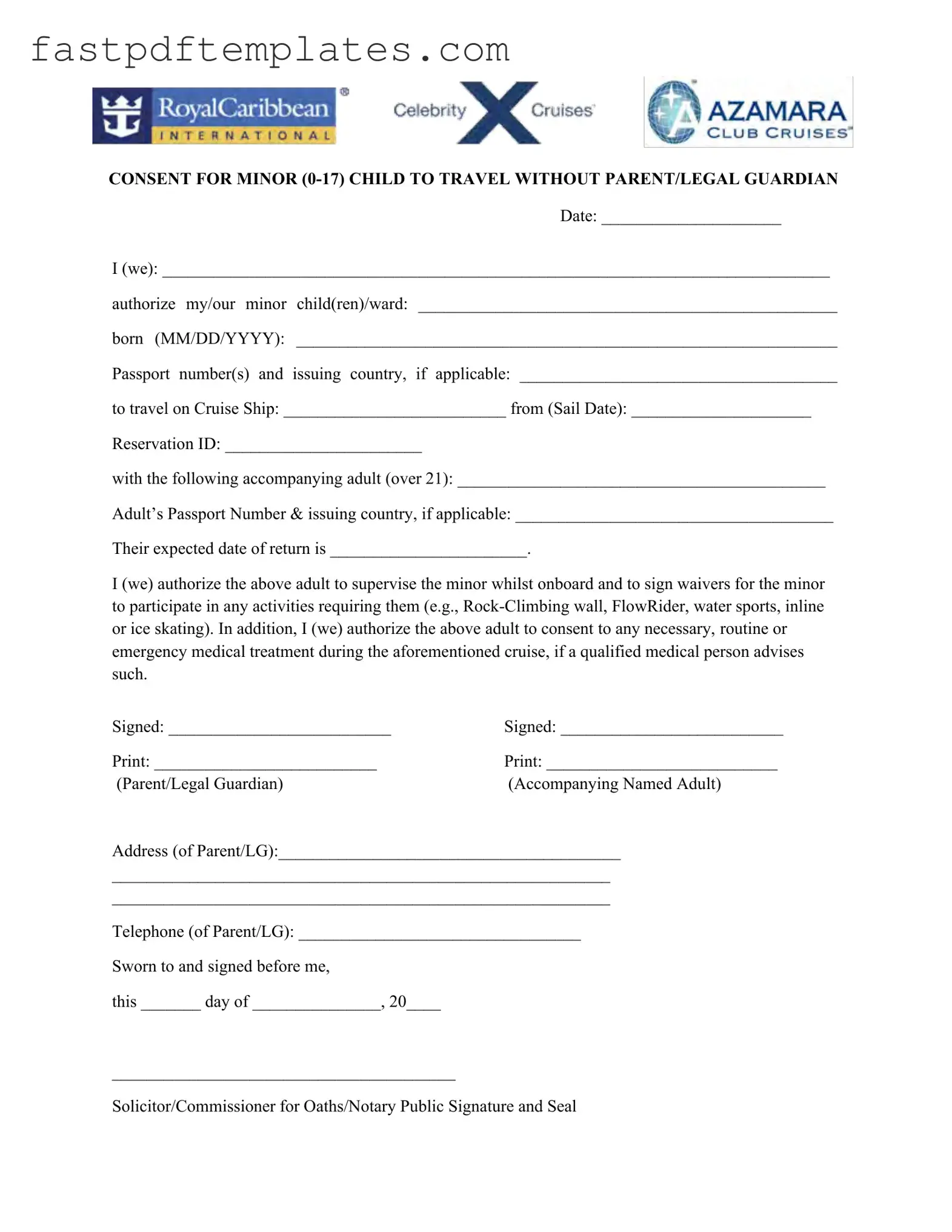Blank Royal Caribbean Parental Consent Form
The Royal Caribbean Parental Consent form is a crucial document designed for parents or guardians traveling with minors. This form grants permission for children to participate in various activities on board the cruise ship, ensuring their safety and compliance with company policies. Understanding its importance can help families enjoy a worry-free vacation experience.
Access Document

Blank Royal Caribbean Parental Consent Form
Access Document
Your form still needs completion
Complete your Royal Caribbean Parental Consent online and download the final PDF.
Access Document
or
Click for PDF Form

